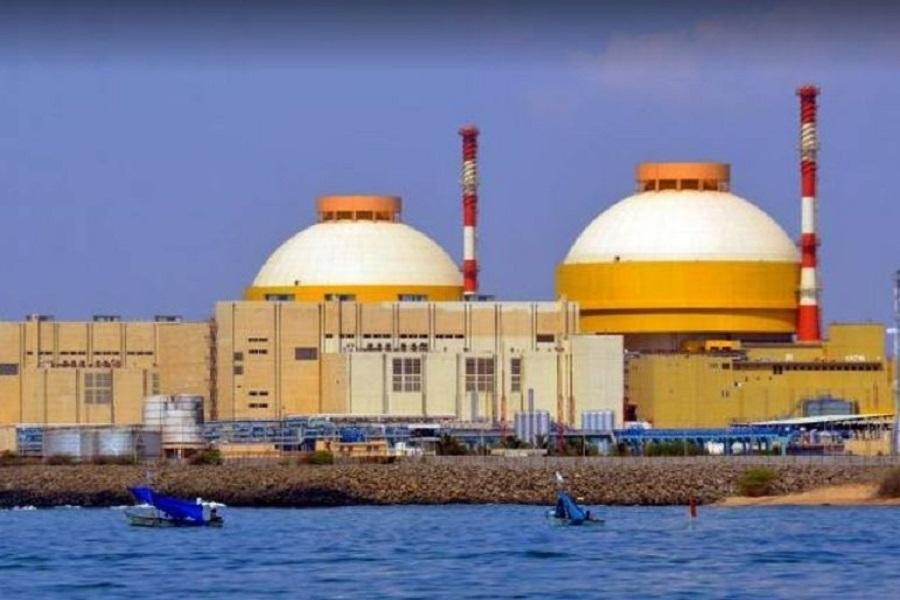
Centre Reviews 100 GW Nuclear Mission to Boost Clean Energy Goals
In a significant move to accelerate India’s clean energy ambitions, the Centre has convened a high-level meeting to review the 100 GW Nuclear Energy Mission. The meeting, jointly chaired by Union Power Minister Manohar Lal Khattar and Minister of State for Atomic Energy, Dr Jitendra Singh, aimed to discuss the progress made so far and outline key directives to achieve the ambitious target.
The 100 GW Nuclear Energy Mission is a critical component of Prime Minister Narendra Modi’s vision to expand India’s clean energy basket and achieve Net Zero emissions. The meeting comes at a time when the world is grappling with the challenges of climate change, and India is committed to playing a leading role in reducing carbon footprint.
India has been aggressively pursuing a clean energy strategy to reduce its dependence on fossil fuels and transition to a low-carbon economy. The country has set an ambitious target of achieving 40% of its electricity generation from non-fossil fuels by 2030. The nuclear energy sector has a significant role to play in achieving this goal, given its potential to generate clean and reliable electricity.
The 100 GW Nuclear Energy Mission was first announced in 2015, with the aim of increasing India’s nuclear power capacity to 100 GW by 2031. Since then, the country has made significant progress in expanding its nuclear power generation capacity. As of now, India has a total nuclear power generation capacity of around 6.7 GW, with 22 operational reactors.
The meeting, which took place on Friday, was attended by senior officials from the Ministry of Power, Ministry of Atomic Energy, Nuclear Power Corporation of India Limited (NPCIL), and other relevant stakeholders. The discussions focused on the progress made so far in achieving the 100 GW Nuclear Energy Mission, as well as the challenges and bottlenecks that need to be addressed.
According to sources, the meeting outlined key directives to accelerate the pace of nuclear power generation in the country. These directives include:
1.Enhancing Public-Private Partnership: The meeting emphasized the need to encourage public-private partnerships to accelerate the development of nuclear power projects. The government plans to offer incentives to private companies that invest in nuclear energy projects.
2.Streamlining Regulatory Framework: The meeting highlighted the need to streamline the regulatory framework for nuclear power projects. The government plans to simplify the licensing process and reduce bureaucratic hurdles to facilitate the development of new nuclear power projects.
3.Capacity Building: The meeting emphasized the need to build capacity in the nuclear power sector, including training and skill development programs for engineers and technicians.
4.International Cooperation: The meeting recognized the importance of international cooperation in achieving the 100 GW Nuclear Energy Mission. The government plans to collaborate with international partners to access advanced technologies and expertise in nuclear energy.
The meeting also discussed the challenges and bottlenecks that need to be addressed to achieve the 100 GW Nuclear Energy Mission. These include:
1.Land Acquisition: The meeting highlighted the need to acquire land for new nuclear power projects. The government plans to identify suitable land parcels for nuclear power projects and provide incentives to landowners.
2.Financing: The meeting emphasized the need to mobilize financing for nuclear power projects. The government plans to offer financial incentives and guarantees to attract private investment in nuclear energy projects.
3.Public Acceptance: The meeting recognized the need to build public acceptance for nuclear power projects. The government plans to engage with local communities and conduct public outreach programs to build trust and confidence in nuclear energy.
In conclusion, the Centre’s review of the 100 GW Nuclear Energy Mission is a significant step towards achieving India’s clean energy goals. The meeting has outlined key directives to accelerate the pace of nuclear power generation in the country, including enhancing public-private partnerships, streamlining the regulatory framework, capacity building, and international cooperation. The government’s commitment to achieving Net Zero emissions is a testament to its determination to address the challenges of climate change and ensure a sustainable future for the country.






